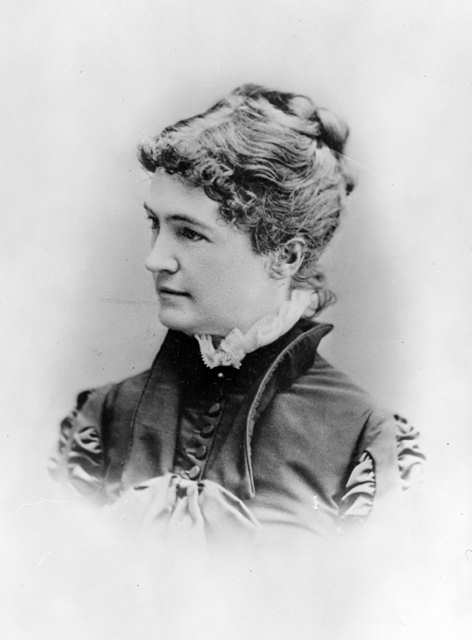|
|
 |
|
|
|
Elizabeth Custer's home
town was Monroe Michigan. She was engaged when General George Armstrong
Custer came home that autumn to recover from a flesh wound. Libby got
married to Custer in February of 1864. During Libby and Custer's
honey moon Libby was left behind in Washington. A few hours later she
found herself on the extreme wing of the Potomac, in a insolated
Virginia farm-house, finishing her honeymoon alone.
The General's old colored servant, Eliza comforted Libby, and the southern family in the house took pity upon Libby's anxiety. It is a sudden plunge into a life of danger, and Libby could hardly remember the time during the twelve years that followed when she was not in fear of some immediate peril, or in dread of some danger that threatened her. After the raid was over, Libby and Custer spent some weeks together and when the regular spring campaign began, Libby returned to Washington, where she remained until the surrender and the close of war. After living in Washington, Libby went to Texas for a year while Custer was still acting as Major-General in command of volunteers. In 1866 Libby and Custer returned to Michigan and the autumn of the same year found their selves in Kansas, where the General assumed charge of the 7th Cavalry, to which Custer had been assigned, with the rank of Lieutenant-Colonel in the Regular Army. They remained in Kansas for five years. The Custer's left Kansas when the 7th Cavalry was reassigned in 1871. Libby and Custer were then ordered, with the regiment, to Kentucky. They stayed in Elizabethtown for two years. Their wish to return to the plains was granted in 1873 when the received orders to report to Fort Lincoln in the Dakota Territory. The regiment band played "The Girl I Left Behind Me" at the 7th Cavalry as General George Armstrong Custer led his command toward Montana and the death on Little Bighorn River in May 1876. General George Armstrong Custer and five companies of the 7th Cavalry were killed when When Libby was 34. For the remaining fifty-two years of her life the "girl" Custer left behind devoted herself to protecting and defending his reputation. Elizabeth Custer shaped the publics memory of her dead husband through lectures, magazine articles and books. Shy was lobbying Congress for a museum at the Little Bighorn battlefield when she died two days before her ninety-first birthday in 1933.
|
|||
| Darcy Worley
8th Grade 2001 American History Rossville Junior High |
|||

